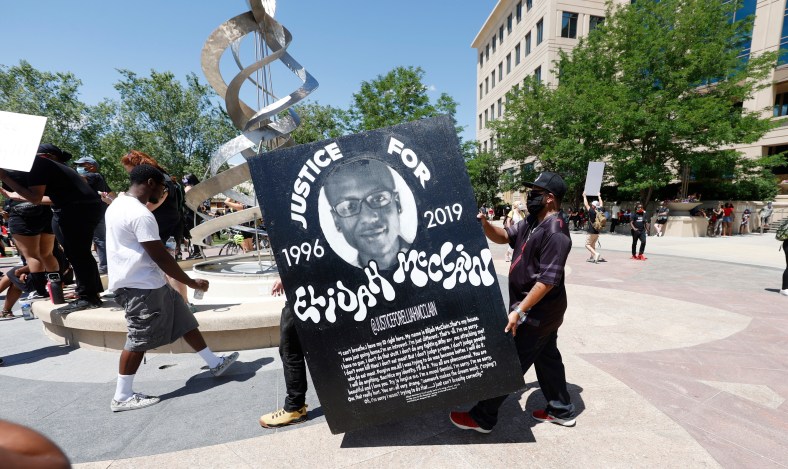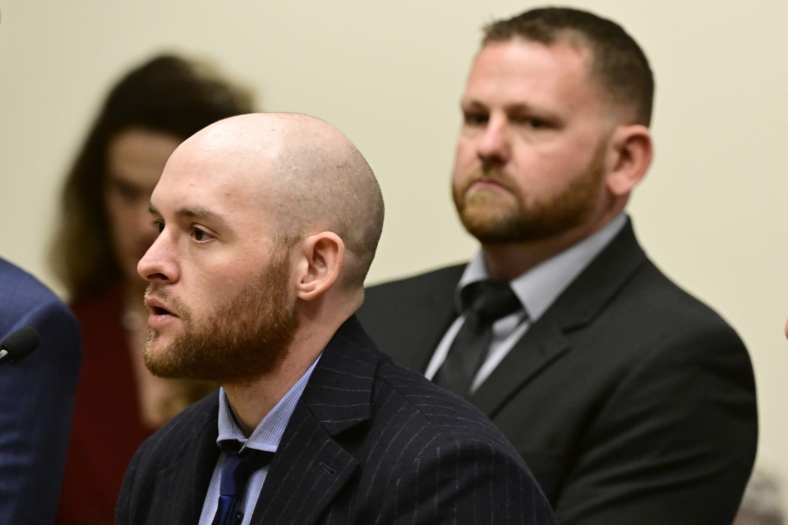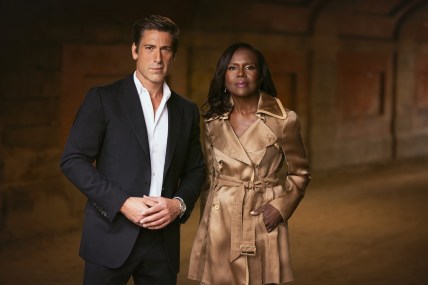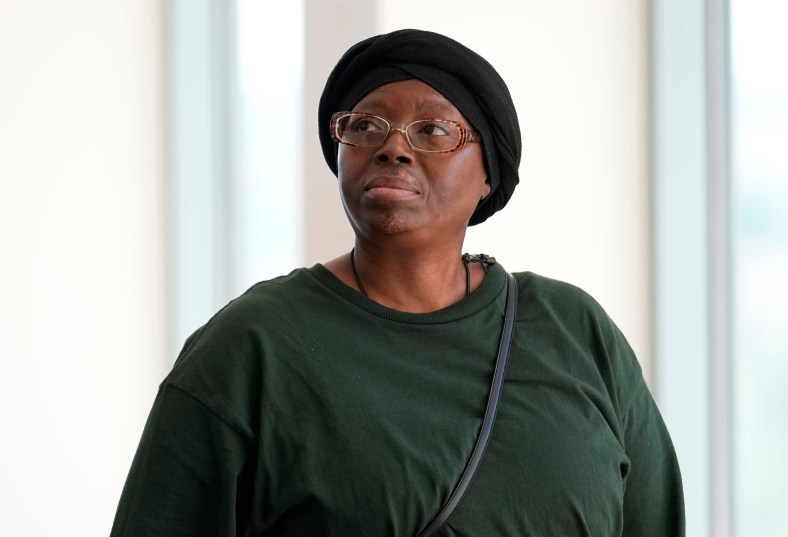What to know about Elijah McClain’s death and the criminal trial of two officers
Two police officers put McClain in a neck hold during a late-night stop in 2021, and McClain can be heard on body camera footage saying he can't breathe correctly.
DENVER (AP) — The trial of two Denver-area police officers charged in Elijah McClain’s death resumed Tuesday as prosecutors press their case that excessive force transformed the late-night stop of the Black man in the summer of 2019 into a fatal encounter.
Criminal charges were brought in 2021 after a national racial reckoning over the murder of George Floyd by Minneapolis police galvanized criticism over law enforcement abuses against Black people and revived interest in McClain’s case.
The officers put McClain in a neck hold during the stop, and McClain can be heard on body camera footage saying he can’t breathe correctly. Defense attorneys argue the officers were properly performing their duties before paramedics gave McClain an overdose of a powerful sedative that led to complications causing his death.
A defense attorney suggested Tuesday that McClain’s attempts to resist the officers also could have contributed to his death by making it harder for him to breathe.
Here’s what you need to know about McClain’s death and the monthlong trial underway in state court:

Why did police stop Elijah McClain and how did he die?
A 911 caller reported McClain, who was wearing earbuds and listening to music, seemed “sketchy” and was waving his arms as he walked home from a convenience store in the city of Aurora, a suburb of Denver, on the night of Aug. 24, 2019. The 23-year-old massage therapist was often cold and wore a runner’s mask and jacket despite the warm weather, according to the indictment.
Jurors were shown surveillance video from the store of McClain wearing the mask and waiting to pay for three cans of ice tea. No one else in the store appeared concerned that he was in a mask, although the clerk’s back was to the camera.
Three officers approached McClain after he left the store. Within 10 seconds Officer Nathan Woodyard put his hands on McClain, turning him around. As McClain tried to escape his grip, Woodyard said, “Relax, or I’m going to have to change this situation.”
The encounter quickly escalated, with officers taking McClain to the ground and putting him in a neck hold, pressing against his carotid artery. Paramedics arrived and injected McClain with the sedative ketamine. He went into cardiac arrest on the way to the hospital and was taken off life support three days later.
Why were the officers charged?
A Colorado prosecutor initially decided against prosecuting McClain’s death largely because the coroner’s office could not determine exactly how he died.
Following the protests over Floyd’s death in 2020, Democratic Gov. Jared Polis directed Colorado’s attorney general to open a new investigation. Two paramedics and three officers were indicted by a state grand jury in 2021.
A revised coroner’s report that relied in part on grand jury information said McClain died of complications from the ketamine after being forcibly restrained.

The officers now on trial — Randy Roedema and Jason Rosenblatt — are charged with manslaughter, criminally negligent reckless homicide and assault, all felonies. They pleaded not guilty.
Roedema, a former Marine who is currently suspended without pay, had been with the department for five years before McClain’s death. Rosenblatt worked for the agency for two years and was fired in 2020 for making light of other officers’ reenactment of the neck hold.
The two officers have not talked publicly about McClain’s death and it’s unknown if they’ll take the stand to testify. Their lawyers told jurors that the officers’ actions followed police policies and weren’t responsible for McClain’s death. They’ve sought to shift any blame to the paramedics who injected the ketamine.
Body cameras worn by the officers captured the confrontation and the footage is being used by both sides to bolster their arguments.

Deborah Roberts to co-anchor ’20/20′
Did the ketamine alone kill him?
That’s what jurors will have to decide.
Rosenblatt initially tried to put McClain in a neck hold but couldn’t because of his position, so Woodyard did, authorities said. The maneuver, called a carotid control hold, restricts the flow of blood to a person’s brain, rendering them temporarily unconscious. Neck restraints have been banned in many states following the nationwide Black Lives Matter protests.
McClain had been kept on the ground for 15 minutes when paramedics gave him 500 milligrams of ketamine. He weighed 140 pounds (64 kilograms) but received a higher dose of ketamine than recommended for someone of his size and overdosed, pathologist Stephen Cina found.
Defense attorneys have brought up the overdose repeatedly since the trial started last week. But Cina also noted that the ketamine was injected after McClain was restrained.

McClain threw up repeatedly and inhaled vomit into his lungs that made it hard to breathe, according to Dr. David Beuther, a pulmonologist who testified for the prosecution. Even before the ketamine was injected, McClain’s health had deteriorated to the extent that he belonged in a hospital intensive care unit, Beuther said.
Beuther acknowledged Tuesday during cross examination by defense attorneys that he could not say whether any specific actions by the police led to McClain’s deteriorating condition before he was given the ketamine.
Roedema’s attorney, Reid Elkus, suggested McClain’s resistance to the officers could have contributed to his own death. Elkus asked Beuther if McClain fighting against the officers could have caused his heavy breathing. “I suppose,” Beuther responded.
“Did you rule out for purposes of causation of death, that maybe Mr. McClain’s own conduct caused him to die?” the attorney later asked.
“That seems more like a law enforcement or legal expert is required for that,” Beuther responded.
What role did excited delirium play?
Excited delirium is a controversial condition involving erratic behavior that is associated with chronic drug abuse, mental illness or both. Some doctors question whether it’s real. Paramedics Jeremy Cooper and Peter Cichuniec concluded about two minutes after arriving on the scene that McClain was suffering from excited delirium, according the indictment. They did not talk to McClain or check his vital signs, it said.
Colorado’s health department in 2021 said emergency workers should not use excited delirium as a reason to administer ketamine. A medical panel for the department found that excited delirium is open to interpretation and “associated with racial bias against African American men.”
What about the other officer and paramedics?
Woodyard’s trial is next month and paramedics Cooper and Cichuniec are scheduled to be tried in November. Judge Mark Warner ruled in January that there would be separate trials to ensure fair proceedings.
TheGrio is FREE on your TV via Apple TV, Amazon Fire, Roku, and Android TV. Please download theGrio mobile apps today!


